Media Mail: Scorching hardcore, psych-y indie, bonkers Christmas tunes and more
I said I'd review any physical media anybody sent me. Here's the latest batch.
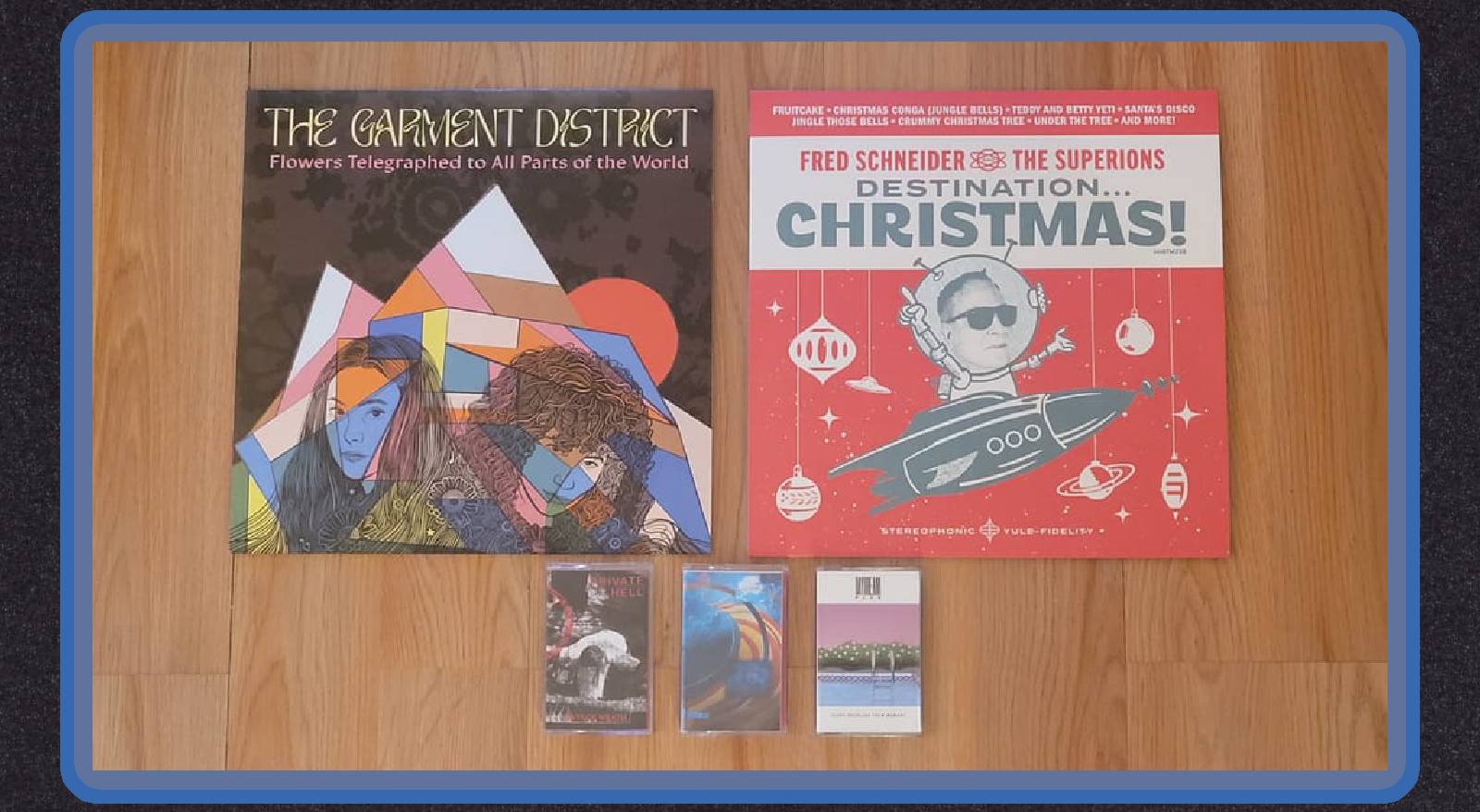
A couple months back I decided to kickstart a new column for this blog where I'll review any physical music media that anybody sends me. Records, cassettes, CD's — hell, I'll even use my dad's reel-to-reel player if someone wants me to review one of those bad boys.
In the first edition, I reviewed a bunch of stuff that To Live a Lie Records sent me. I really enjoyed most of it, and thought some of it was just OK. For this edition, I received cassettes and LP's from a bunch of different folks, and after taking my time to digest the material, I've got my write-ups for each release below.
I'll reiterate what I stated in the terms when I first launched this column: "I'm not guaranteeing that I'll have anything nice to say about what I'm sent." This isn't me doing pay-to-play music criticism. You're not gonna get a nice flowery write-up just because you sent me some free shit.
I'm doing this as an exercise to engage with material that either didn't end up in my email inbox, or that I probably wouldn't have reviewed to begin with. Either because it missed me, or because it's a style of music I don't typically cover. If someone (an artist, label, publicist, etc.) values my opinion on music so much that they send me a physical copy in the mail to solicit a review, then I pledge, as I did with the five items below, to spend quality time with the music and give it an honest, thoughtful review. No matter what.
So that's what I did. From math-rock and hardcore to indie-rock and Christmas originals, see what I thought of this most recent haul below.
If you're an artist, label or publicist who wants to send me stuff for review, email me at elijenis1994@gmail.com
Daydream Plus - Clues Recalled From Memory
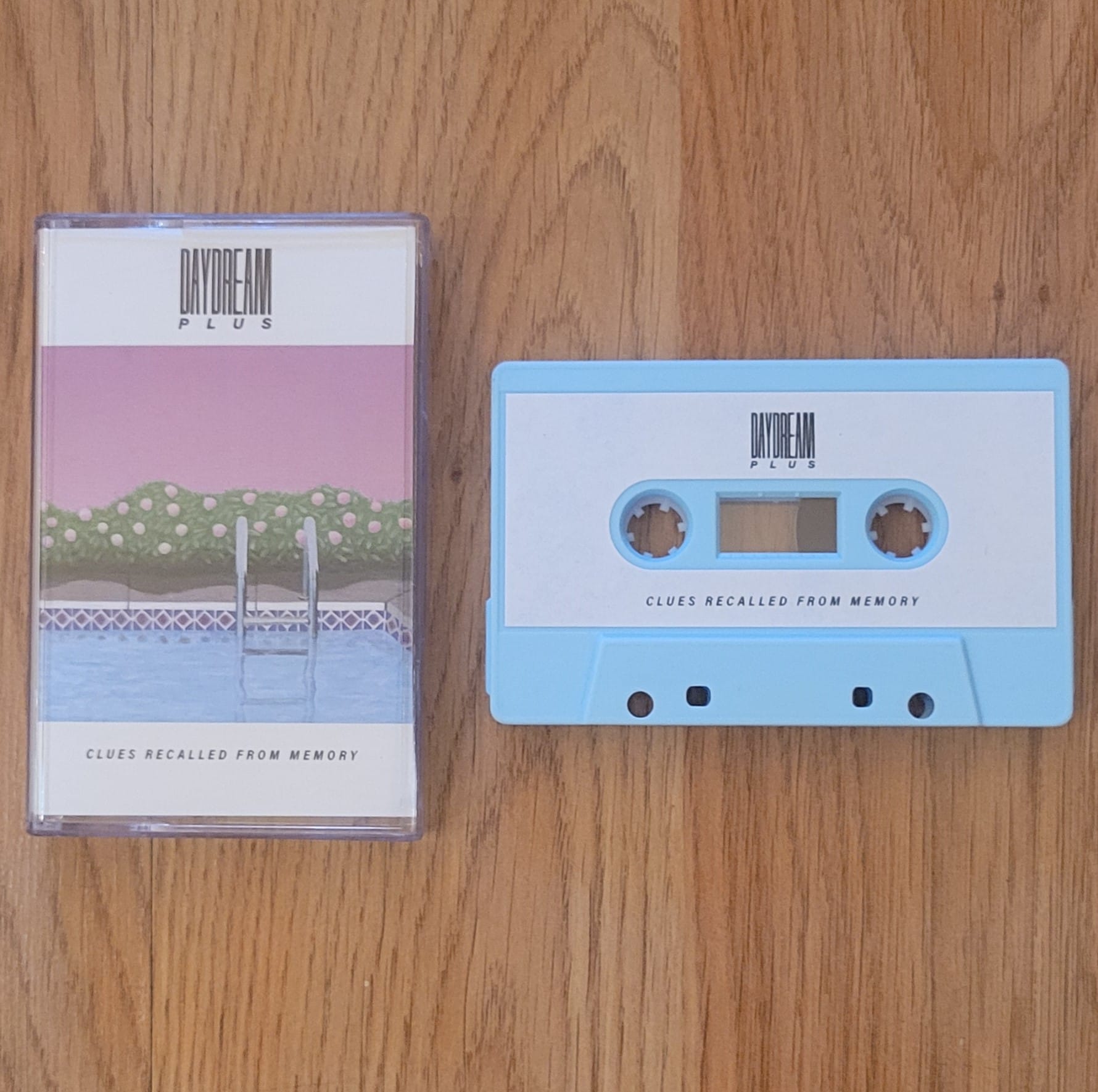
Before I popped this in my tape deck, I asked my girlfriend what she thought it might sound like based on the cover. "Ambient...noisy," she replied. I concurred. I was sent this cassette by Payson Power, who plays guitar in this instrumental duo alongside drummer Max Klebanoff. Their band name, Daydream Plus, feels like a too-obvious reference to vaporwave pioneer Macintosh Plus, and the cover art — a painting of a placid poolside with rose bushes decking a pink wall — looks like the kind of thing that could've come out on fortune 500 or Business Casual in the 2010s.
But alas. This is not vaporwave. Nor is it ambient — or even the least bit noisy. Daydream Plus make clean, brisk, instrumental guitar music. Daydream Plus call it "gently technical." You could call it math-rock. You could call it prog stripped to its barest necessities. You could call it ambient music for guitar store employees with ponytails. And I don't mean that condescendingly! This is just a very specific type of guitar nerd music that doesn't really scratch an itch I'm currently feeling, but is nonetheless competent, pleasant and even enjoyable for a time.
What's notable about Daydream Plus is that both Power and Klebanoff also play in Tomb Mold, the Canadian death-metal adventurists who just released what many metalheads would call the best death metal album of the year. Tomb Mold are a band I've struggled to crack, and that's not a knock on them. They play a type of death-metal that's not tech-death, but is still quite technical. It's not proggy or up its own ass, but it's still thinking-person's death metal. Tomb Mold began as a studio project, so those guys were initially down to just make metal on their lonesome and never have to worry about playing it live.
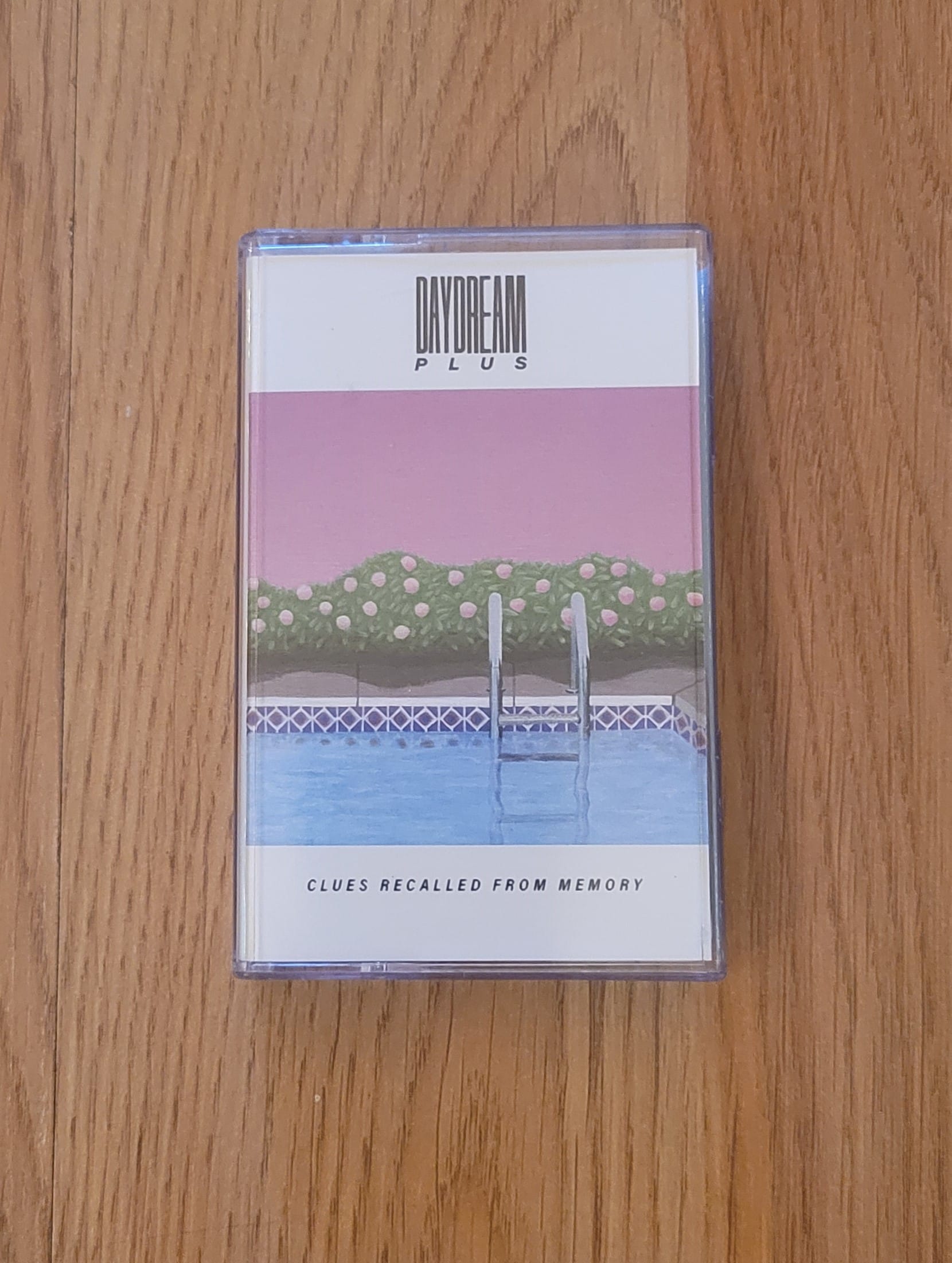
I'm partial to death metal that's ugly. Violent. Groove-heavy. Mean. Tomb Mold are heavy, and I know many 'a metalhead who've described their work as brilliant. One day I hope I can crack it, but for now, their music feels arm's length to me. I think the four songs on this Daydream Plus LP, Clues Recalled From Memory, are a lot easier to digest than Tomb Mold's music, but I feel a similar degree of distance from being to connect with this beyond a surface level.
I think the dynamic back-and-forth on the first song, "More Time Alone," makes it my favorite. I like the way it starts with a jazzy rustle and slowly grows to a jaunty mid-tempo pace, but then drifts back into this wafting lounge motif that effectively conjures the gorgeous setting on the artwork. I want to dip my toe into that crystal clear water and perch on the side with a drink in my hand while listening to "More Time Alone." By the time the third song arrives, though, I'm ready to dunk my head under and clear my ears for a while.
Power's guitar playing is incredibly tight, while Klebanoff's restrained-yet-plucky drumming takes a back-seat to his bandmate's noodling. He's there to provide the backbone, and Power is there to shred. He never truly goes off with a masturbatory solo, and part of me is grateful for that because it would've been predictable. But also...I wouldn't have minded a little more variety here. The recording is crisp and roomy, and I have no qualms with the mixing/mastering. But it's the same pedal effects the whole time. There're leads that are repeated, but the playing feels pretty through-composed and it's difficult to latch onto any sort of structure or melodic refrain.
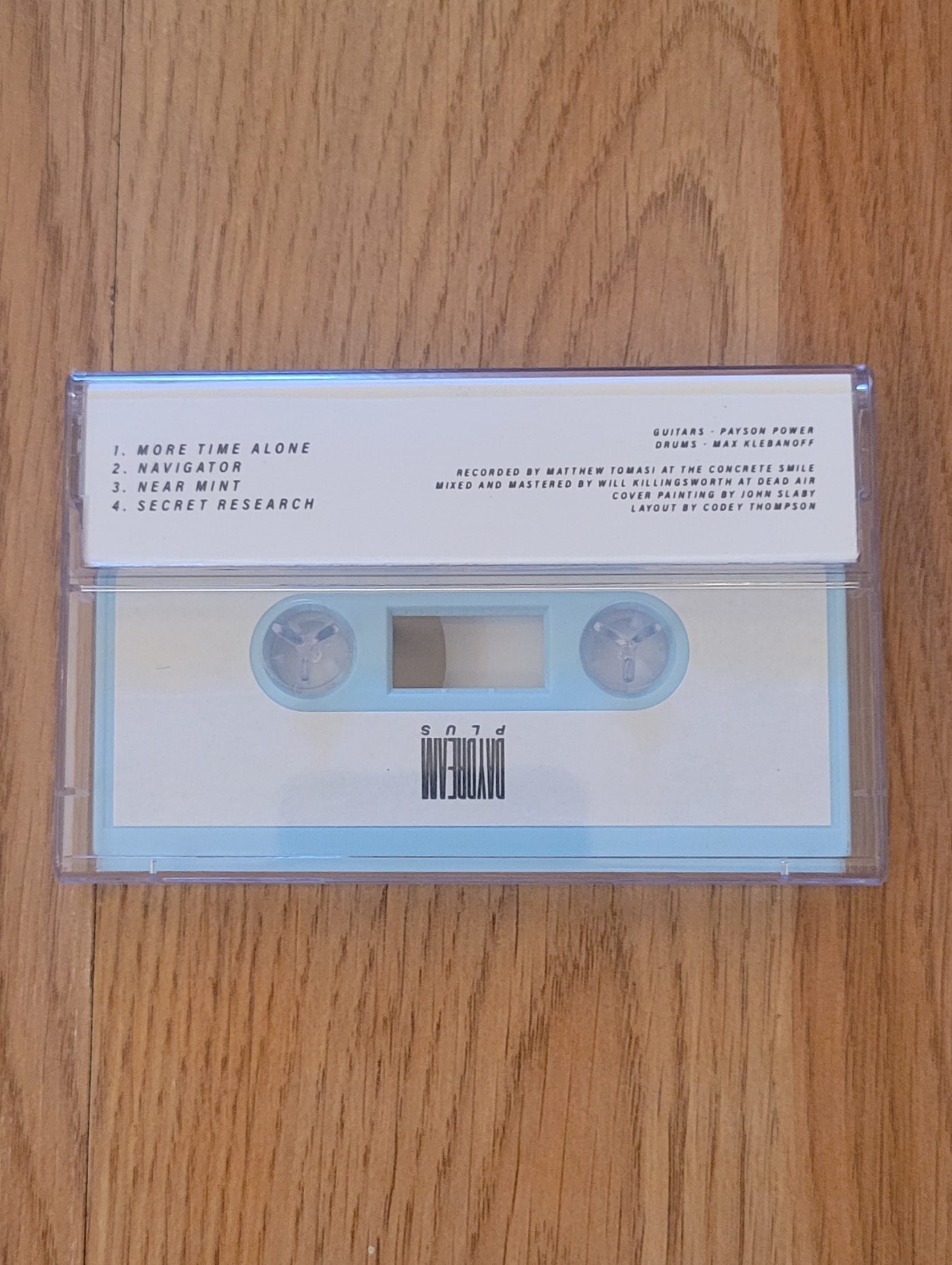
Since it's four songs at around three minutes a piece, I don't feel exhausted by the end of Clues Recalled From Memory, but if it went on any longer I definitely would. I like the look of this cassette and the sound of the recording more than the actual music itself. I've never been a math-rock guy, and while this isn't metal by any means, all it needs is some distortion and a lower tuning to be residing in the same milieu as Animals as Leaders. For some people, that description might be a ringing endorsement. For me, it's another way of saying: This is very well-done. This is something I want to like. But ultimately, this isn't my thing.
All good. I like the cassette so much (especially the light blue shade on the media itself) that I'll pull this off the shelf every now and then just to look at it and shruggingly give the tape another go. Maybe one of those times it'll catch me.
Private Hell - Days of Wrath
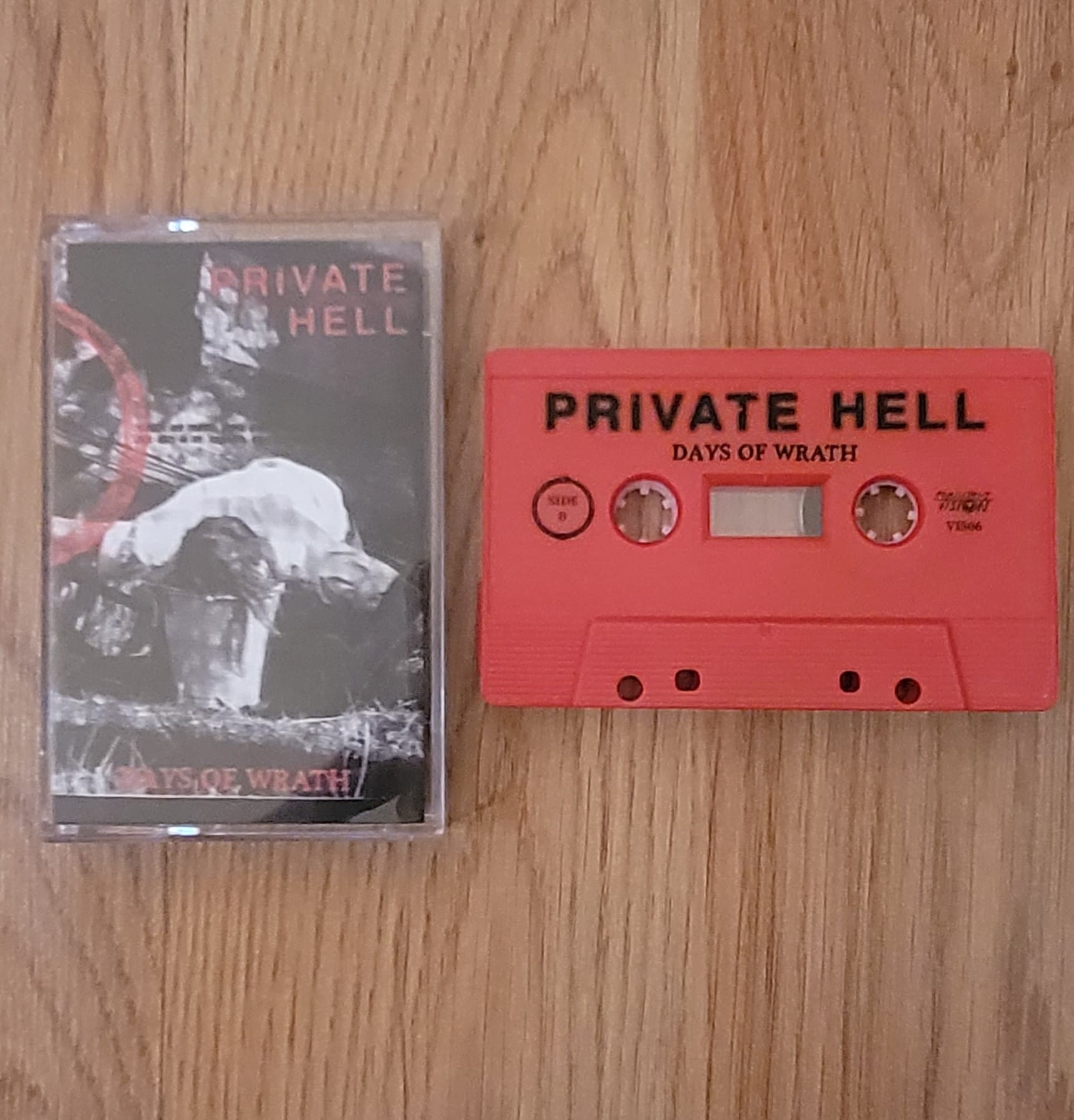
Richmond, Virginia, is a hardcore hotspot these days. One of my favorite hardcore LP's of 2022 was the obliterating debut from Killing Pace, and other recent releases — from the savage d-beat din of Destruct to the Life of Agony-meets-Crowbar groove of Mutually Assured Destruction — have made significant waves in their respective hardcore lanes. Throw in the almighty thrashers Enforced, the death-metally brutes Tempter, and of course the underrated pit-starters Division of Mind, and you're looking at one of the finest hardcore outposts on the East Coast. Private Hell are in good company.
Private Hell were a name I'd seen floating around for a minute, and after popping their new EP, Days of Wrath, into my tape deck, I knew by the halfway point of track one that this was gonna be good. The band features four scenesters who've all (I think?) played in other bands, none of which I'm familiar with other than Erik Phillips, who used to release lo-fi bedroom-pop à la Teen Suicide and Elvis Depressedly under the name Cat Be Damned. Completely different world of music, but I was intrigued to see him pop up in the Private Hell lineup.
The six songs on Days of Wrath actually cover a decent amount of ground, but the easiest way to describe it is noisy, thrashy hardcore. Texturally, I'm hearing a lot of influence from the scathing, feedback-encrusted sounds of classic Japanese hardcore. Compositionally, it splits the difference between old-school thrash and the kind of roiling, scabrous hardcore that Integrity tapped into in the mid-90s. The songs also have a cool kinship with their current Richmond peers, as I hear bits and pieces of some of the aforementioned bands throughout the tracklist.
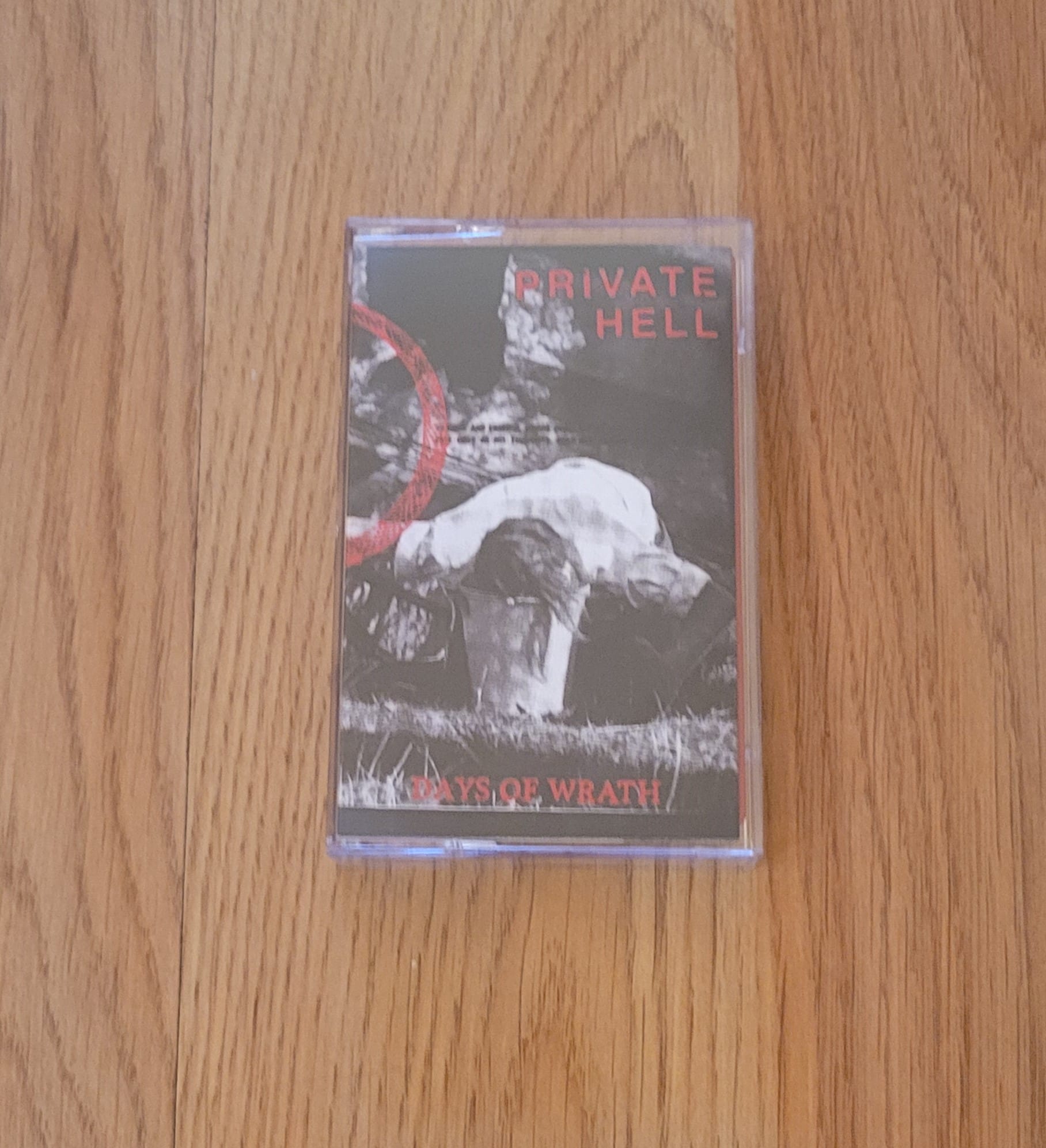
For instance, "Progress" is an ear-bleeding crossover cut that tosses in some of swampy, sludgy riffs in a way that nods to Mutually Assured Destruction — and by proxy, their influences in bands like War Hungry — but also has some vocals that reminded me of Destruct (or their influences in Disclose or Totalitar, for that matter). Private Hell are primarily fast and ripping, so when they do slow it down like at the end of "Days of Wrath," when a fucking torrential thrash breakdown grinds to a mucky plod, you can really feel the lurching change in tempo.
There's not a track on here that feels frivolous, but the obvious highlight is "Tower of Silence." The blend of full-throated thrashin' riffs with haggard punk vocals hits that perfect crossover sweet-spot that Richmond bands are just built for (see: early GWAR, Municipal Waste). However, compared to an extraordinarily tight outfit like Enforced, there's a looser, punkier quality to Private Hell's delivery that feels akin to very early thrash-metal; more amateurish than Ride the Lightning, so we're talking that Kill 'Em All/Show No Mercy sweet-spot, but with a Celtic Frost ugliness to the sonics. The whole EP has a catastrophic vibe to it that brings to mind Seasons in the Size of Days-era Integrity, and "Tower of Silence" especially leans into that with the Clevo epicness of its swinging second half.
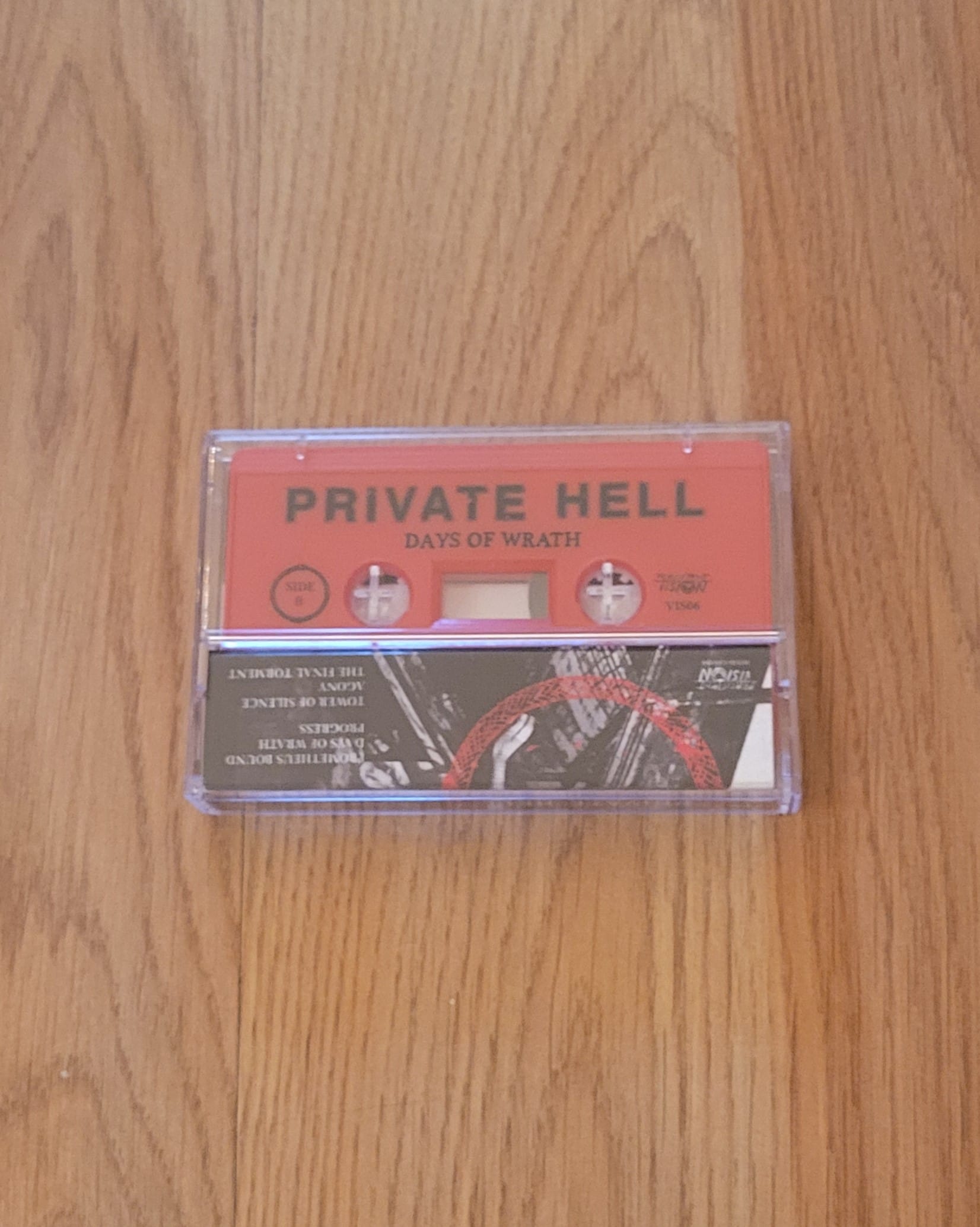
This is only Private Hell's second EP and they do still sound like a sum of their influences, but not in a way that feels reductive or like they're just obviously toasting one specific band/sound/era. It sounds like they've thrown together a deck of cool periods in hardcore and shuffled it together to create a new order that's fresh, headbangin', and also fun to dissect in a nerdy way like I just did. If you like any one of the bands I referenced, don't let Days of Wrath pass you by.
York Land - My Underground Ocean
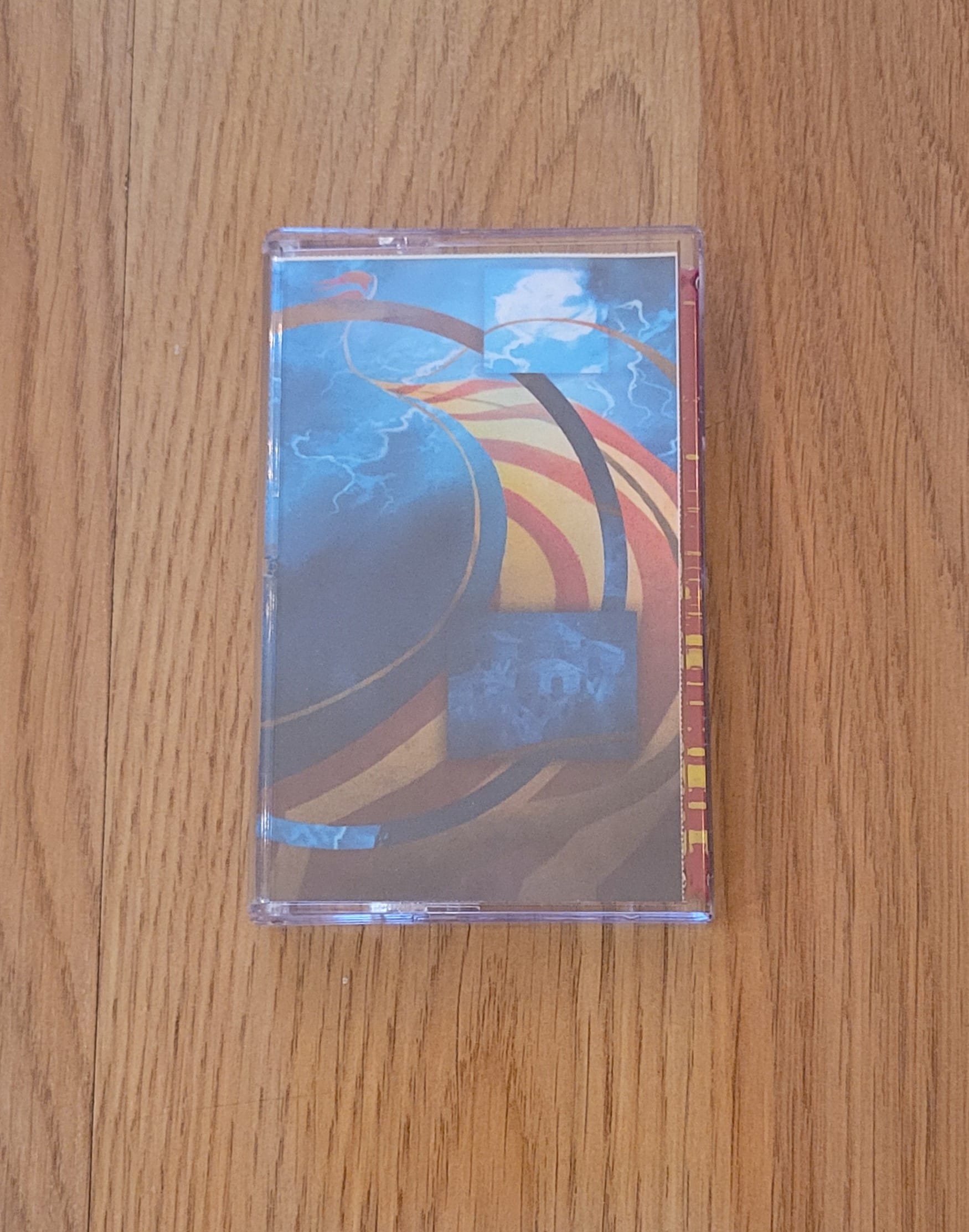
Speaking of vaporwave! Well, kind of. Not really...but almost. I was sent this cassette by York Land, a producer from Burlington, New Jersey who put this record My Underground Ocean out in 2020. I like that I was sent some stuff in this batch that's not brand new. It's fun to engage with something for the first time that isn't hot off the presses; somehow it feels like there're less stakes involved. It isn't tacitly expected to "meet the moment," or whatever.
I don't think there was ever a moment when My Underground Ocean would be in-vogue, anyways. This is a strange album. The Bandcamp description states that it's "about a boy named Blue Jr. coping with his negative feelings towards his friends, his town, and the world around him." That sounds like it could be written about an emo record, but this isn't that kind of New Jersey album. It's an "electronic" record with no singing, just some spoken-word passages weaved into its sprawling tapestry of sounds. I say "electronic" in quotes because I'm not sure which sounds were found vs. recorded, since two people are credited with playing trumpet and guitar/bass on here.
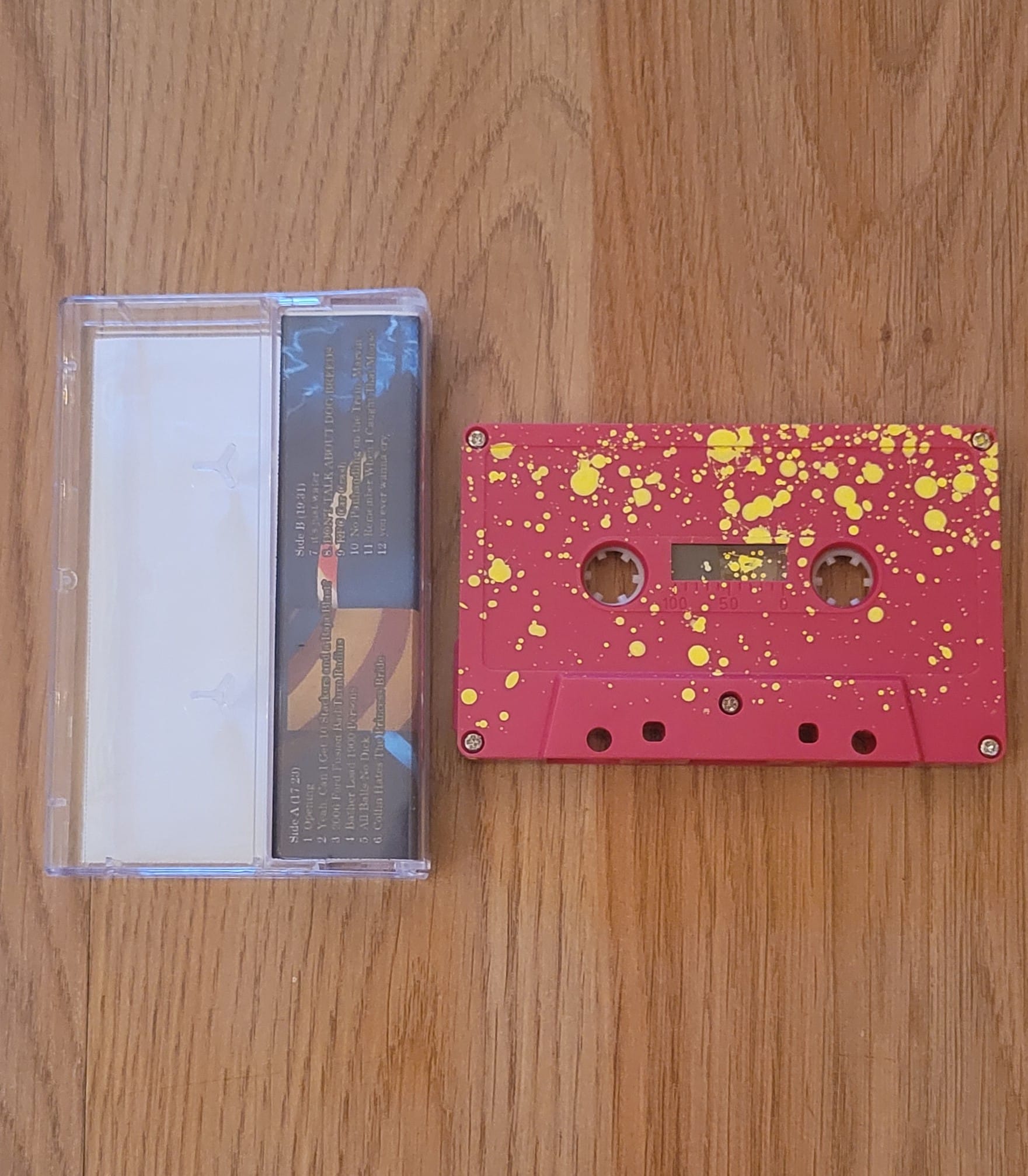
There isn't a neat way of describing this thing. It's a restless conglomerate of lilting chillwave, drowsy piano jazz, skittering drum 'n' bass, dark plunderphonics in the vein of DJ Shadow, and some chintzier 80s synth-pop stuff that's very much in the vaporwave lane. There're parts that you can dance and bop your head to, and many other sections that are more oblique and stagnant. There're a few narrations, styled like 80s crime drama voice-overs, that mention Blue Jr. by name. But whatever storyline is happening feels purposefully vague and more emotionally transmitted than rationally told.
I do get vague feelings of angst and negativity on here, though every portion of haunting, minor-key synths is balanced out by an equally uplifting IDM beat that evokes the squinty-eyed coolness of early Aphex Twin. The cacophony of carnival barker announcements that begin the album don't last long, as the record soon dips into a smooth passage of easily-downable electro-groovery. But don't get too comfortable.
My overarching issue with My Underground Ocean is how fleeting every good moment feels. York Land doesn't linger on a musical motif for more than 30 seconds at a time, and more often than not, the upcoming section will be a jarring transition into a completely different style of music with a totally different mood. The bipolar rollercoaster is fun for a few songs, but I started to feel aurally seasick by the halfway point of the cassette's second side.
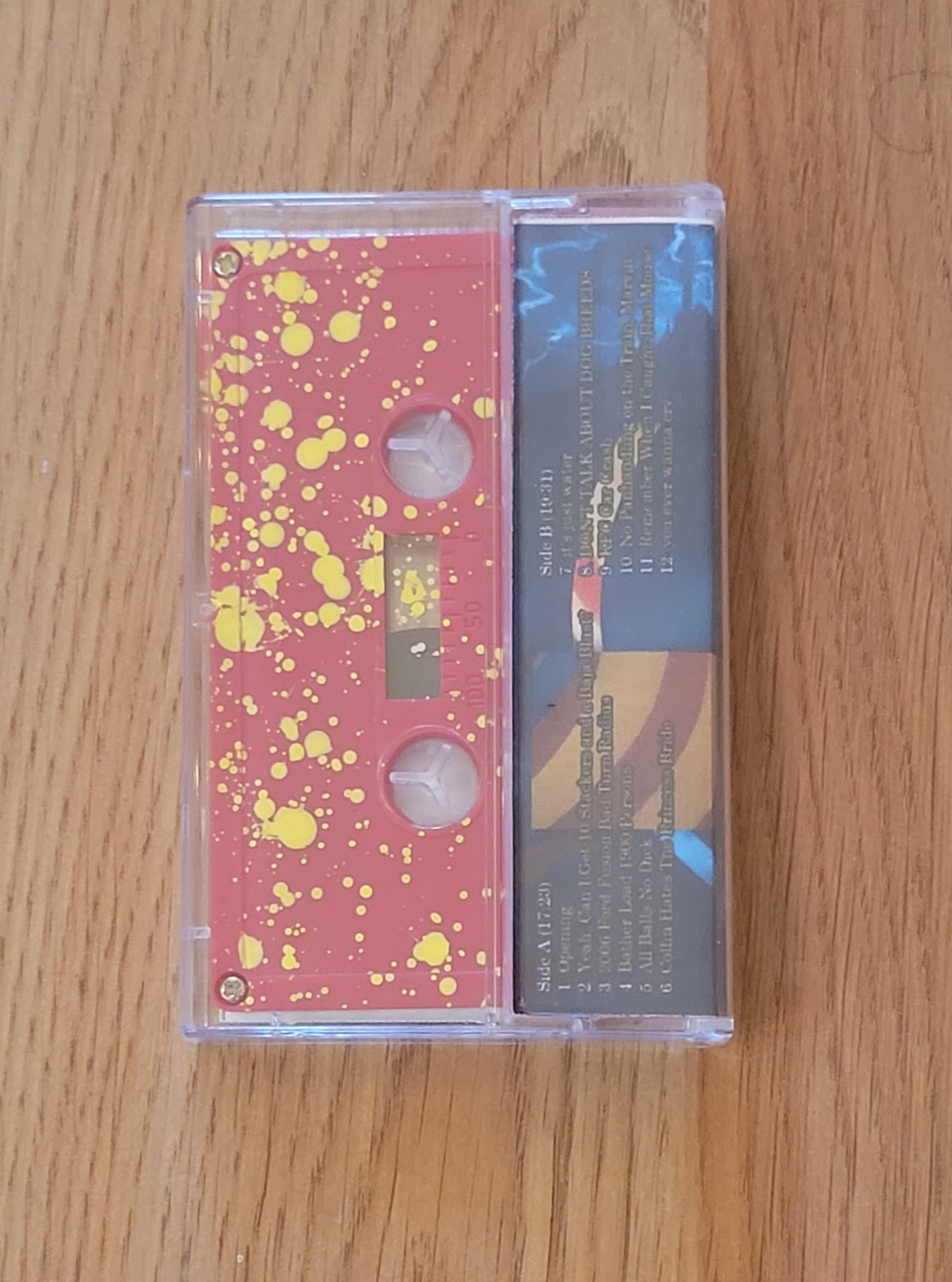
I could do without the spoken-word narrations. The storyline is incoherent anyway, and I think they distract from some of the more interesting musical moments. That said, York Land pulls myriad genres into the fold here without mastering any of them. It's a quantity-over-quality approach that's intended to overstimulate and discombobulate, and while I think that's a fun gimmick for a few songs, it wore me more often than it tickled my fascination.
For instance, the best composition on here is "you ever wanna cry," a seven-minute blitzkrieg that starts out with a flurry of pitter-pattering percussion and whirligig synth arpeggios, and gradually balloons into a formidable barrage of sounds that redline the mix in a way that feels both challenging and gratifying. My ear wants whatever's happening to keep going, to keep steadily morphing into something bigger. But the crescendo just breaks apart at its peak, a non-English speech is played over some moody piano plucks, and then the record ends with another one of those Blue Jr. narrations.
It's an unsatisfying conclusion to an album that's full of potential and features many short, cool moments, yet is ultimately kneecapped by overwrought songwriting choices. It's not easy to make albums that are genre patchworks. That's why shit like The Avalanches' Since I Left You are so eternally beloved. Stringing together that many different types of music into one cogent project is truly difficult. York Land didn't get there on My Underground Ocean. Perhaps on the next one they will.
The Garment District - Flowers Telegraphed to All Parts of the World
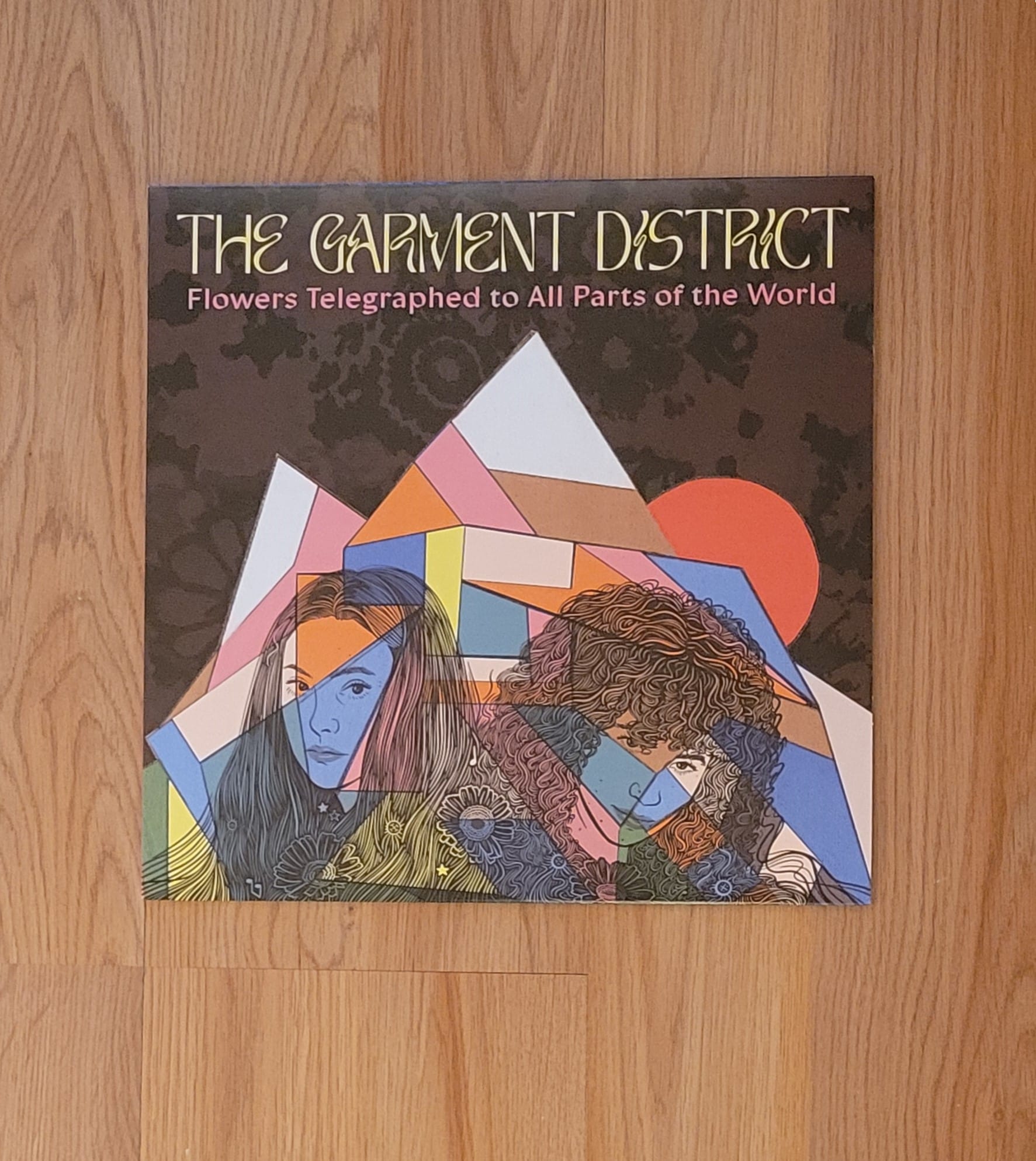
The Garment District are the band led by Pittsburgh-based artist Jennifer Baron, a multi-instrumentalist singer-songwriter who notably did time in the Elephant Six-associated psych-pop band The Ladybug Transistor (best known for their 1999 Merge Records highlight, The Albemarle Sound).
Pittsburgh's music scene is understatedly diffuse, so even though I'm pretty tuned-in to what's happening in the punk/indie-rock/hardcore realms of the city, I had never heard about The Garment District until I was sent the vinyl for Flowers Telegraphed to All Parts of the World. Through doing a bit of research, I learned that Baron was very active in the local arts scene here in the 2010s (when she released three Garment District albums), and at least once, the band played a now-defunct institution called Ladyfest, and have recently gigged around other venues in the city that I'm familiar with.
That said, it was kind of refreshing to go into this record without any real context for who The Garment District are, and with no familiarity about Baron's previous band, The Ladybug Transistor. It's cool to hear something from the city you live in that's totally fresh, and certainly outside of the 20-something musician zeitgeist that I've been steeped in for a while now.
So what does Flowers Telegraphed to All Parts of the World sound like? Psych-pop, to put it simply. Flush with the flowery psychedelia of the late-60s, but coated with an indie-rock veneer that's hard to define yet immediately felt. There's a timelessness to this music that'll warmly evoke whatever period of psychy pop-rock you came up with. To me, it feels in conversation with a 2010s-era band like La Luz, or some of the other West Coast psych/surf revivalism that sprung up in the early 2010s around the rise of Ty Segall and Co. To others, it might hark back to the era of Donovan, and people who are about 10 years older than me will probably flash back to the Elephant Six era.
The thing that stands out most about this record is how busy it is. Every song is a warm, maximalist gush of convivial organs, synths and pianos, which Baron arranges amid a typical guitar-bass-drum backdrop, and then fills the gaps with a party of guest vocalists. Her bandmate Lucy Blehar's chipper sing-song leads most of the record, her voice smothered in reverb and often layered with other balmy croons to create a dense yet sometimes suffocating fountain of peppy coo's. I like her voice, it's pretty and suits the surrounding instruments, but I also like when the vocals are passed off to completely different singers, like Dan Koshute on "The Starfish Song and "The Island of Stability," or the dream-poppy falsetto of Alex Korshin on "The Instrument That Plays Itself."
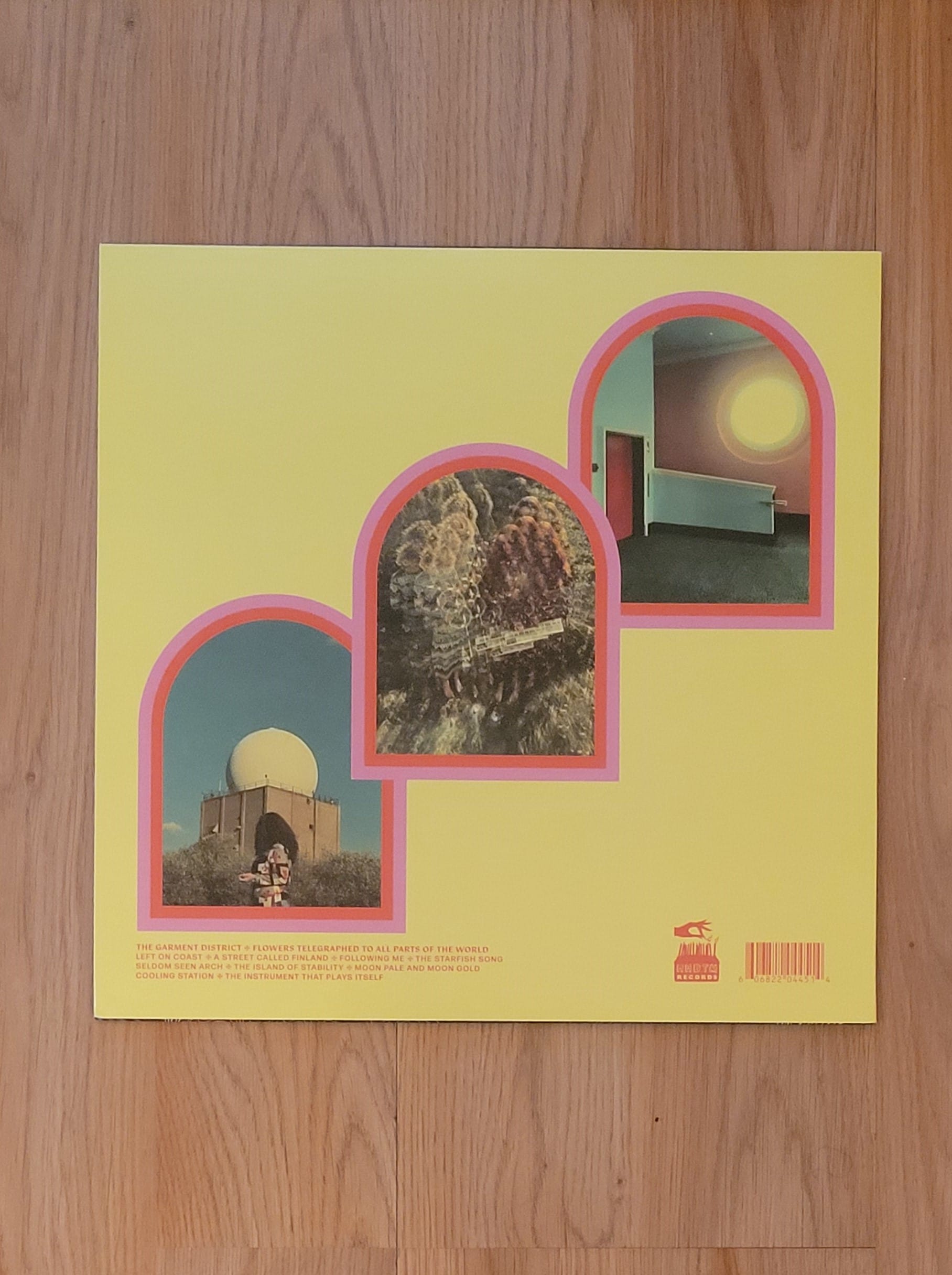
Altogether, there are 10 collaborating musicians on here (outside of Baron and Blehar) who contribute everything from drums, bass, and guitar, to trumpet, shaker, saxophone, and violin. The record is at its best when all these instruments are combined to create a veritable psych-pop orchestra. "The Starfish Song" builds into a swirling vortex of trumpet and guitar, a psychedelic explosion that feels like a woozy nicotine head-rush after a long night of drinking. "Following Me" has an absolutely epic crescendo that features firecracker blasts of distorted guitar, squealing key instruments, and a triumphant "la-la-la-la" vocal refrain. Between that and the awesome, riff-heavy strut in the back-half of "A Street Called Finland," the album packs way more of a walloping punch than you'd expect from its timid intro.
The album's second half is more experimental than bombastic. The strange baroque pop of "Moon Pale and Moon Gold" sounds like it was recorded in an empty church, with slapping, echoey percussion that evokes someone giddily whacking the wooden pews with drum sticks in a fury of inspiration. At times, the lilting, relatively stagnant mid-range of the vocals can become taxing, so the instrumental "Cooling Station" offers a refreshing breather; a trip-hoppy groover outfitted with tooting synths, bubbly bass and stray whistles that sound like a pep rally chant for a march of anthropomorphic ants.
Again, the album feels timeless: In the sense that it's unmoored from basically every trend happening in present-day Indie Rock (it's playful, it's trippy, it's un-self-consciously whimsical, and it's totally devoid of social media-era irony). I think that works for and against it. I like how it sounds pleasantly aloof toward the era of Phoebe Bridgers, Alex G and Wednesday, and looks that way too. The album cover is adorned with funky colors, geometric shapes, and an ink-and-pen illustration of Baron and Blehar that has Nineties coffee shop boho-chic vibes.
It looks like it could be from 1997, 2007 or 2017. It doesn't look or sound very 2023 (or the bits of 2003 that young people are mining for inspiration), and doesn't feel groundbreaking or cutting-edge in that sense. But there were several times on this record when I just had to look at the song title, nod my head affirmatively and mutter to myself, "Damn, this is fuckin' rippin'!" Isn't that all that really matters?
Fred Schneider and The Superions - Destination...Christmas!
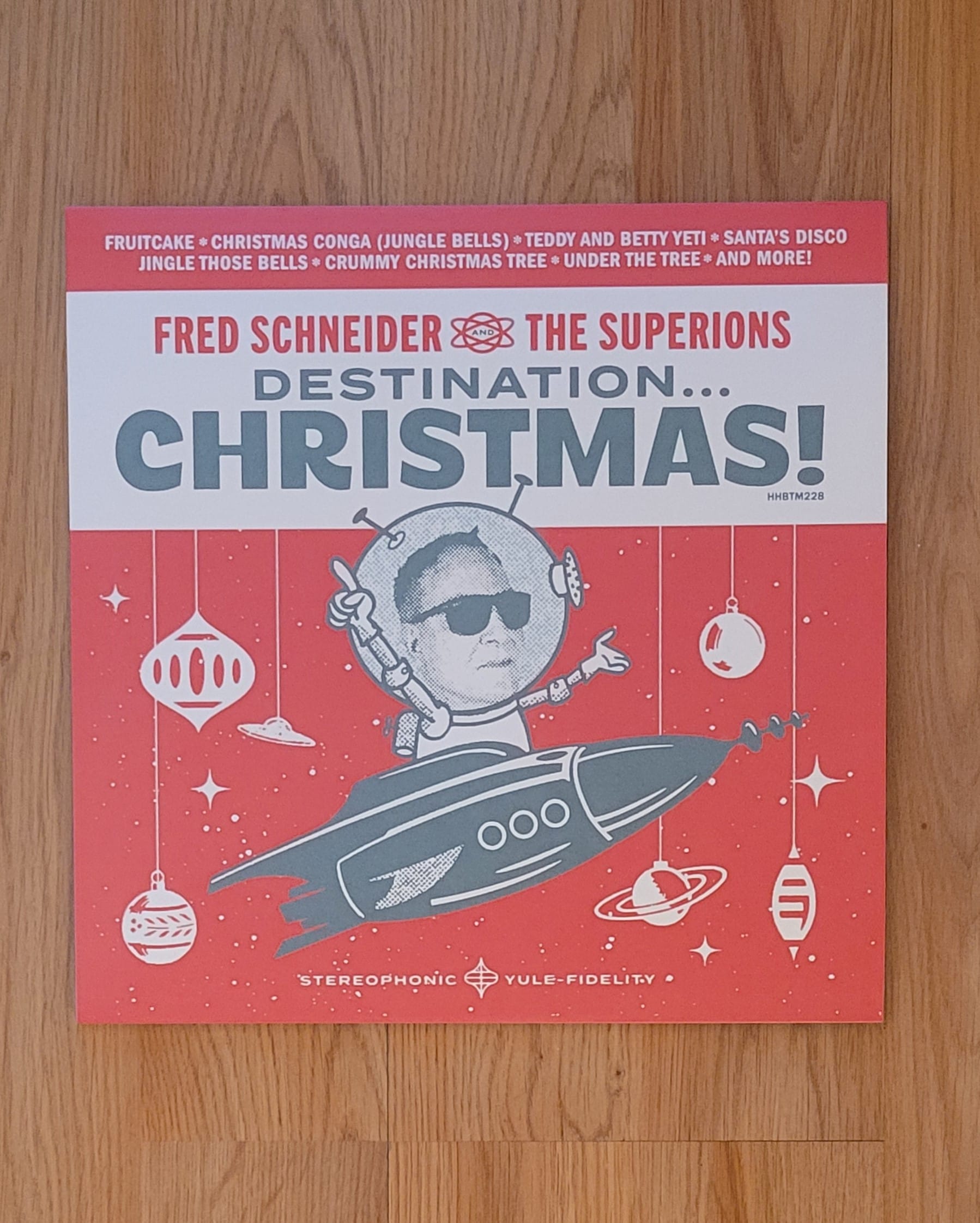
Lately I've been thinking about what makes a good Christmas song. "Run Rudolph Run" by Chuck Berry? Amazing Christmas song. "Last Christmas" by Wham!? Perfect Christmas song. "Cold White Christmas" by Casiotone for the Painfully Alone? Exceptional Christmas song. The medium is so sonically and lyrically diverse that there isn't one set of criteria that an artist needs to adhere to in order to make a perennial Christmas anthem, but I do think the track needs to fall into one or more of the following categories: 1. Festive 2. Funny 3. Affecting.
Even if it's not lyrically clever or pushing the format forward content-wise, if the song at least makes me feel like Christmas is here while I'm listening to it, then I'm in. If a Christmas song actually manages to be funny (which is incredibly hard to do, across any genre of music) then there's a good chance it'll end up on my Christmas playlist. But if it's not funny or particularly festive, then it at least has to be emotionally devastating. If it lands on the poignant, crying-by-the-fireplace side of the Christmastime spectrum, then it has the potential to be even better than funny and/or festive tunes. If it's all three of those things at once (as "Cold White Christmas," and all of Owen Ashworth's best Christmas songs are) then it's an S-tier Christmas song.
None of the songs on Fred Schneider and the Superions' Destination...Christmas! are S-tier Christmas songs. In fact, these are some of the least enjoyable, least festive, and most un-funny (while trying to be funny) Christmas songs I've ever heard. And it brings me no pleasure to write those words, because I really wanted to like this album.
The record was propped up on my shelf for a month before I finally threw it on the turntable, and I spent a lot of time just staring at its cover and appreciating the retro design with the kitschy photo of Schneider's head superimposed onto the body of an animated astronaut. The cover had promise, and being someone with an average amount of familiarity with Schneider's work in the B-52's, I knew the guy had produced enough bona fide hits that if he put his back into a wacky album of Christmas originals, then it had a chance of being pretty damn charming. Unfortunately, this album — originally released in 2010, but re-issued on vinyl this year via HHBTM Records — contains a very minimal amount of charm, and a whole row of stockings stuffed to the brim with cringe.
On Destination...Christmas!, Schneider and his Superions bandmates, Noah Brodie and Dan Marshall, thump their way through 11 original Christmas songs that are not only completely unmemorable, but almost all actively irritating in their own ways. My only concrete expectation from this record was that there'd at least be some songs you could dance to, and you can in fact get the legs moving to opener "Santa's Disco" and "Teddy and Betty Yeti," which are absurdist club cuts with primitive house beats pulsing beneath Schneider's braying vocals. "Santa's Disco" imagines a Christmas Eve where Santa and his North Pole team are out partying instead of tending to their toys, while the latter is a positively ridiculous story about a pair of yetis eating up Mrs. Clause and turning the reindeer into stew.
The campy female vocals on the chorus of the former have a B-52's theatricality that provides a welcome dash of familiarity, but despite how zany the concept is for "Teddy and Betty Yeti," the arrangement is so minimal and repetitive, and his vocals so flatly delivered, that its silliness doesn't translate. Beyond the instantly recognizable cadence of Schneider's voice, he otherwise sounds strangely anonymous on that track. Elsewhere on the record, he simultaneously sounds like he's giving too much and too little of himself to the songs.
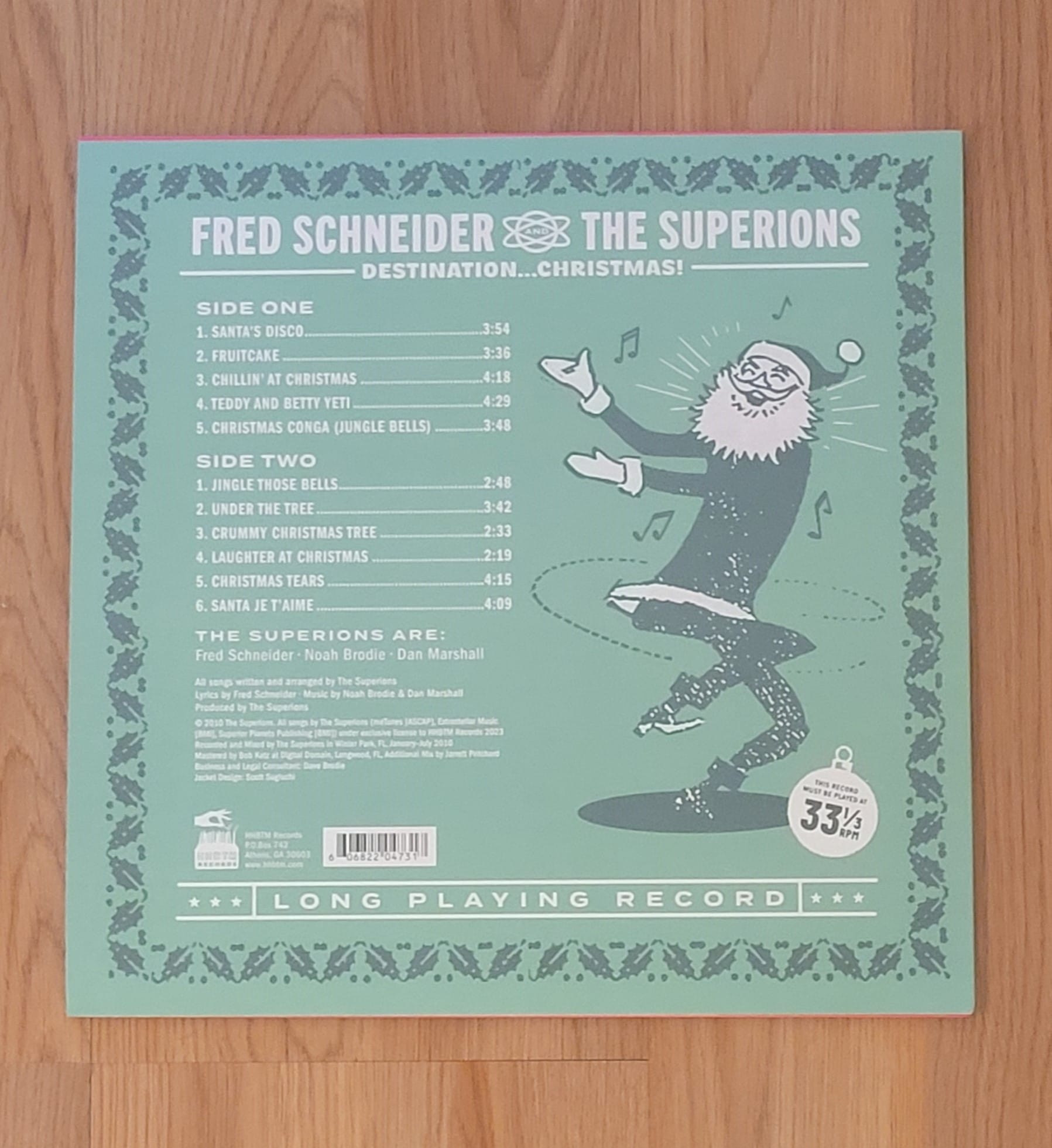
"Fruitcake" is a comedic, quasi-diss track of the controversial Xmas delicacy, but the mildly amusing theme loses steam at the two-minute mark and then drags on for another minute-and-a-half. "Under the Tree" also falls victim to its length, as the hot-and-steamy funk number about "making love under the tree" is almost scintillating the first time around, but feels played-out by the second chorus.
However, even more trying to get through are the skit songs. "Chillin' at Christmas" has a plush hip-hop beat and a whispered hook that's kind of catchy, but Schneider's spoken-word jests sound like they were improvised in the booth — and not in a good way. The other skit song, "Christmas Tears," also has a cool instrumental — particularly the icy synths that almost sound like spirals of chopped-up choir singing — but Schneider ruins it with an incomprehensible sketch where he impersonates a bunch of grumpy Scrooge-like people complaining about carolers, boring family members, and shitty snow. It sounds like a bad SNL bit that never left the writers' room, and Schneider's half-assed performance plays like an actor muttering through a first read while battling a hangover.
The weirdest songs on the record yield both its best and worst moments. "Christmas Conga (Jungle Bells)" contains lines about Santa travelling to the Amazon to hear the "native beat," and you can seek out the rest for yourself if your morbid curiosity gets the best of you. "Crummy Christmas Tree" is the only track on here that actually features jingle bells, but it's an irritating nursery rhyme chant about a misfit Christmas tree that's both a downer (it gets thrown in the fire for not selling at the tree farm) and painfully unfunny.
"Laughter at Christmas," on the other hand, is so bizarre that it actually works. In one channel, Schneider's speak-singing about the joy of laughter around the holidays with an uncannily warm deadpan, and in the other, he's unleashing deranged whoops and batshit guffaws like someone's crank uncle who drank from the eggnog marked with three xxx's. The sheer lunacy and unbridled silliness finally got me to crack a smile — nine songs into this "comedy" record.
Lastly, the closing song is something I never want to hear again, but for that I give it credit. "Sana Je T'aime" is a minimal, Moroder-esque instrumental that's overlaid with a woman orgasming and moaning Santa's name, to which he replies with a robotic "ho ho ho." It'll make you squirm uncomfortably by the 30-second mark, so after listening through four full minutes of pornographic yuletide shenanigans, I was both wincing and giggling with approval at its unending idiocy.
Again though, the best moments on this record are good in that they're effectively obnoxious, but not in a way that makes me want to revisit any of them. With little to no "traditional" Christmas instrumentation, and lyrical themes that are trying to be more provocative and absurdist than they actually are, the record does not check the "festive" box. None of the songs on here are affecting, nor are they trying to be. But unfortunately, they're not funny either. Despite Schneider's flaccid attempts at subverting family-friendly Christmas tropes with tales of partying Santas, under-the-tree canoodling and "omg Grandma is boring, I'd rather be texting" brattiness, his humor comes off as forced and underdeveloped.
Meanwhile, the hyper-minimalist songwriting leaves a lot to be desired, and since the songs themselves aren't very pleasant to listen to, Schneider's half-assed lyrics and phoned-in vocals make most of them genuinely hard to get through. Destination...Christmas doesn't get me in the Christmas spirit, it's impossible to sing along to, and it's only funny in a, "Jee-sus I can't believe he's actually doing this" way. It's not a good Christmas record. Sorry, Fred.
If you're an artist, label or publicist who wants to send me stuff for review, email me at elijenis1994@gmail.com

